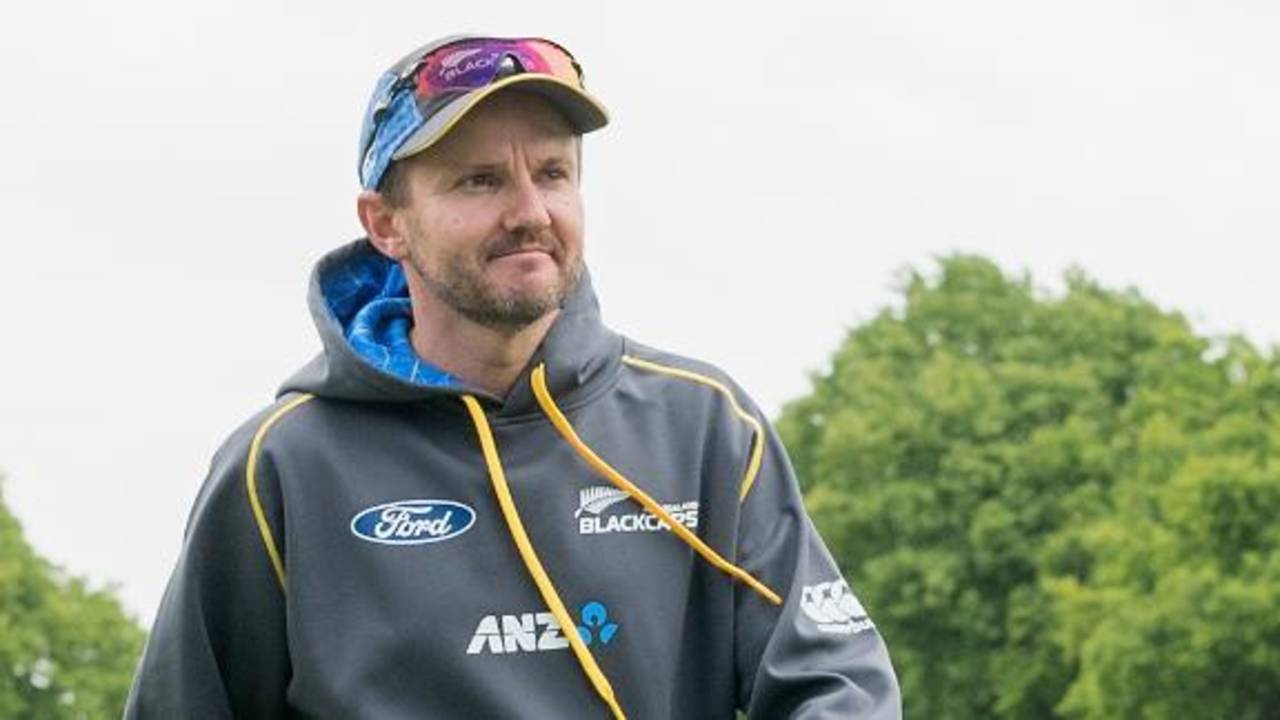New Zealand face 'important series' without key personnel
New Zealand face a quick change in formats, the loss of some key personnel and the No. 1 ODI team when they travel to Australia for the one-day series
Brydon Coverdale
01-Dec-2016
Two days ago, New Zealand celebrated victory in the second Test against Pakistan in Hamilton, a win that meant a 2-0 triumph in the series. At least, they celebrated inasmuch as they could: the next day eight of their Test XI were flying to Australia to defend the Chappell-Hadlee Trophy. Australia's players thought they had a quick format switch after the Adelaide Test, but New Zealand are two days and one international flight worse off.
New Zealand also arrive with no Ross Taylor, who is recovering from eye surgery. They have no Adam Milne, Mitchell McClenaghan, or Corey Anderson, who are all out injured. Surprisingly, they have no Ish Sodhi, the legspinner who only once has faced Australia in an ODI earlier this year, and was Man of the Match, yet has been left out now. And of course, there is no Brendon McCullum, Daniel Vettori, Grant Elliott, Nathan McCullum, or Kyle Mills, all retired since the World Cup.
"We are missing some key players," New Zealand coach Mike Hesson said in Sydney on Thursday. "We've lost over 1000 one-day international games since the World Cup. To replace those is a challenge. But we've also got some exciting players that you guys won't know a lot about. Hopefully you will in a week or 10 days. That's important for us to give them this sort of exposure, and find out which ones we want to keep backing and supporting."
Among the new faces are legspinner Todd Astle, preferred in this series to Sodhi, and yet to make his ODI debut. Then there is Colin de Grandhomme, the seam bowler, who made a stunning Test debut against Pakistan last month but has only one ODI to his name, nearly five years ago. And then there is the 25-year-old fast bowler Lockie Ferguson, uncapped for New Zealand in any format, but a man who at his best can break the 150kph mark.
"With Adam Milne missing, Lockie gives us that point of difference in our attack," Hesson said. "He hasn't played a huge amount up until that last two seasons. He's got over a lot of injuries. He's got to an age where those major issues tend to dissipate a bit, once you get to 24, 25. He's a strong bowler, he's certainly quick. I'd be very surprised if he doesn't play at some point in this series.

Both sides have lost some key personnel since last year's ODI World Cup•International Cricket Council
"He's like Adam Milne, they've both bowled over 150 at times ... Lockie is at the early stage of his career, but we know that he's capable of bowling at pace at times. It's difficult, your first series there's obviously going to be some nerves. But he's a confident character. When he gets his opportunity, I'm sure he'll give us a point of difference in our attack, which is important."
Not that Australia's ODI side is without change. Batting allrounder Hilton Cartwright is hoping for a debut in this series, and Australia's leading ODI wicket taker in 2016 - John Hastings - has been left out due to the return of frontline fast men Josh Hazlewood and Mitchell Starc. And, like New Zealand, Australia have lost much ODI experience since the teams met in the 2015 World Cup final, with Michael Clarke, Mitchell Johnson, Brad Haddin and Shane Watson all retired.
Since then, the teams have met once in a Chappell-Hadlee Series, when New Zealand won 2-1 at home earlier this year. And despite Australia's 5-0 thrashing in a one-day series in South Africa in October, when they took an under-strength attack and rested Starc and Hazlewood, they will enter this series as No.1 in the world, as compared to New Zealand at No.3.
"Their one-day side is a heck of a lot more settled than their Test side," Hesson said of Australia. "Their one-day side has been incredibly consistent, bar the South African series they've been very good for a number of years. Currently ranked No.1 in the world, so I don't think the unsettled nature of the Test side will lead into the one-day side.
"We want to hang on to the Chappell-Hadlee. We've won it the last couple of times and it's really important for us. Australia are our big brothers and to win a bilateral series against them is important to us. If the byproduct of that is an increase in rankings then great. But we tend to look at the rankings at the back end of a season and see how you've gone, rather than it be a motivation for us."
Brydon Coverdale is an assistant editor at ESPNcricinfo. @brydoncoverdale
